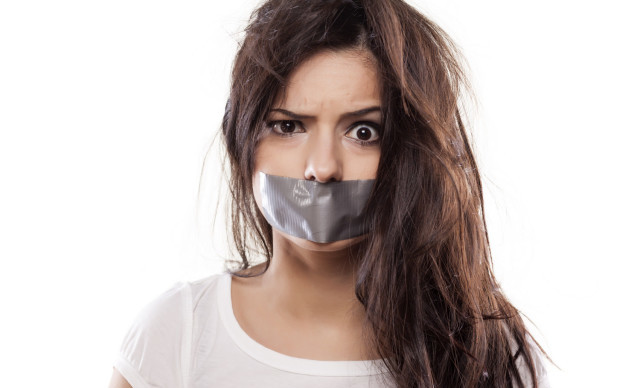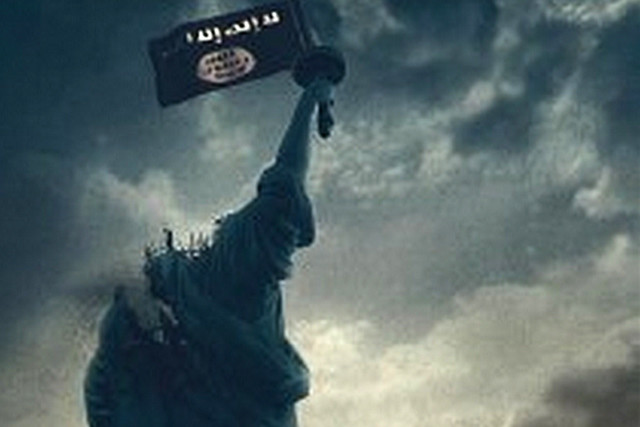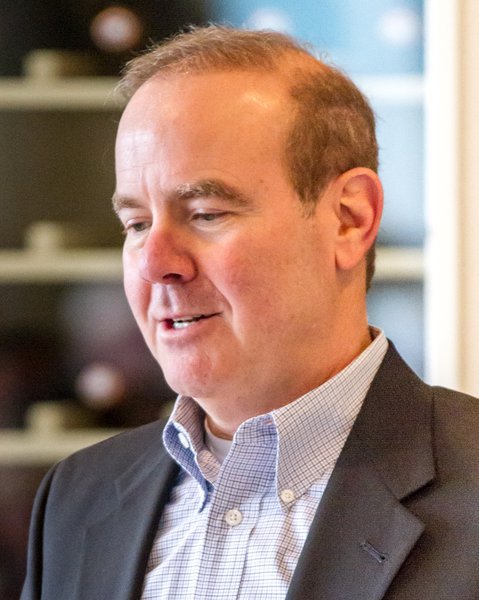Censorship Is an ‘Unjustifiable Privilege’ by Chris Marchese
Free Speech Is about the Power to Challenge the Status Quo!
Free speech is the great equalizer in our society. It doesn’t matter about your race, ethnicity, sex, gender identity, gender expression, sexual orientation, class — you get the point — the First Amendment protects your right to speak freely. Despite this, some student activists — perceiving unequal social conditions, including at institutions of higher education — are fighting for social change at the expense of free speech. The sad irony, however, is that free speech only becomes privileged when it’s restricted, which is why free speech must remain a right equally applicable to all.
To understand why, consider Nigerian author Chimamanda Ngozi Adichie’s commencement speech at Wellesley College in 2015. In it, she said, “You, because of your beautiful Wellesley degree, have become privileged, no matter your background.” But, she added, “Sometimes you will need to push [this privilege] aside in order to see clearly,” because “privilege blinds” you to those who are different.
Students calling for speech restrictions are particularly blinded by their privilege, which leaves them unable to see the unjust privilege that restricting speech would further confer upon them. This is dangerous and counterproductive to their cause.
Restricting Speech Is an Unjust Privilege
First, to support restrictions on certain kinds of speech, activists must have (or at least project) unwavering confidence in both themselves and the system in which they are operating — the university in this case — to discern what’s offensive. Even if they see gray areas in expression, they are forced to present issues in absolutist terms if they are to have the perceived moral authority to police and punish those who offend.
Turning again to Adichie’s speech, we can see why this is wrong. As she said, “I knew from … the class privilege I had of growing up in an educated family, that it sometimes blinded me, that I was not always as alert to the nuances of people who were different from me.”
Sometimes, people are genuinely racist (though what’s considered racist varies widely from place to place) and their speech is identifiable as such. But what about the student who isn’t aware of the offense he or she may cause by wearing a sombrero at a party, which some consider cultural appropriation? How about the student who is aware but disagrees that it’s offensive? Should he or she be censored and punished based upon some activists’ standards of right and wrong? Different people have different experiences and different views. Because of this, nuance matters.
Second, while it can be tempting to argue that free speech maintains inequality because it protects offensive speech, this argument fails to distinguish between people and their views. That is, when you censor people — even for offensive speech — you are denying them equal access to, and protection of, the First Amendment and you are doing so from a position of privilege. The right to free speech gives everyone an equal right to voice his or her opinions — but it does not mean that such opinions will win or even register in any given forum.
Restrictions on free speech, on the other hand, make both people and ideas unequal by subjugating them to someone else’s understanding of what’s right and therefore allowable. Indeed, to assume one’s views are so infallible as to warrant imposition on others and to assume there is no legitimate debate left to be had on certain topics — and the language used in discussing those topics — is a privilege that oppresses not only the hated racist, but the honest dissenter and everyone in between.
Lastly, some students claim that free speech is about power — that it enables and sustains privilege for some but not all. Let’s be clear: free speech is about power. It’s about having the power to challenge the status quo, question society’s deeply held beliefs, and call others to task. But free speech only becomes privileged when it’s restricted.
Understanding the Would-Be Censors
Of course words can have consequences. (If they couldn’t, nobody would bother speaking.) It would be hypocritical to argue that offensive speech will never cause harm, at least to feelings or interests, while also maintaining that speech is so vital it requires robust protection. One could also argue that the marketplace of ideas — like all markets — has negative externalities. The most evident, as campus activists assert, is that offensive speech is protected and those it’s directed at — typically thought to be minorities — are disproportionately burdened by it.
Moreover, restricting or punishing speech provides instant gratification. It’s an immediate and swift response to views one finds abhorrent. It gives the impression that justice has been served. For those who believe society is stacked against them, it’s a small beacon of hope. Restricting speech, then, isn’t seen as infringing upon someone else’s liberty, but rather righting a wrong. The emotional appeal is understandably strong.
But this is not right.
A Just Alternative
The best way to counter hateful, offensive speech is with more speech. Think of it this way: restricting speech treats the symptoms of bigotry by making its manifestations less visible. Conversely, more speech acts as a cure by attacking the underlying disease. The former method may seem effective in the short term, but it’s dangerous in the long run.
As FIRE President and CEO Greg Lukianoff has argued, when offensive speech is banned, it drives those with potentially dangerous views (however determined) underground, making them harder to identify, while also potentially making them more extreme. It also gives a false sense of social progress. And who ultimately pays the price? The people the bans were meant to help, when it turns out society wasn’t as friendly as they believed.
Countering hateful speech with more speech is not seamless. It’s hard work, and it’s not instant. It doesn’t guarantee the flushing of all bigoted and hateful opinions from society, and it often works slowly. Nevertheless, it is the only method that is both just and that makes progress last. Engaging with people who express views different from one’s own moves beyond the superficial to challenge core beliefs, assumptions, and biases — and can help a person identify and recognize his or her own. Consider the case of Megan and Grace Phelps, granddaughters of the pastor who founded the Westboro Baptist Church. After interacting with a Jewish man by email and on Twitter, the sisters decided their views were wrong and decided to leave the WBC, which also meant being excommunicated by their family.
The marketplace of ideas won’t always work this way, and not everyone is destined to see the light. But restricting speech is a privileged response that neither makes society more equal nor has any tangible benefit other than providing a false sense of justice, which, in the long term, only fuels underlying problems. We cannot afford to be blind to this reality.
None of this should be construed as a plea to accept the status quo or to disengage. Rather, it’s a call for college students who support restricting speech to recognize their own privilege. Education is a gift, and college students should use the privilege it confers to advocate for change. But this means realizing free speech is not the enemy of progress, and that restricting it will not make society more equal. To do otherwise — to restrict and punish speech — is to be so willfully blind to privilege as to become the oppressors.
This article first appeared at the Foundation for Individual Rights in Education.
Chris Marchese is a communications assistant at the Foundation for Individual Rights in Education.





